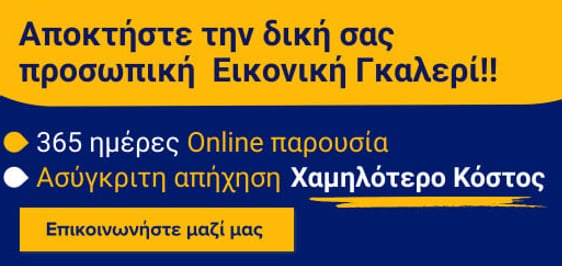Επιμέλεια: Εύα Πετροπούλου Λιανού
THE LISP AND THE LANGUAGE OF THE HUMAN BODY by Dr Jernail Singh Anand
As soon as natural objects came into being, the first thing bestowed on them was an inbred capability to express themselves. This is the language of existence, partly endowed by the creator, and partly by the preceptors of mankind.
For example, how the moon enters into a dialogue with other stars: it can be understood at two levels. One, how the gods want them to interact with each other, and in a language, far from the grasp of mankind. The other is, how we decipher it, and give it our own signs and significations.
So far as the language of gods is concerned, it is certain they neither talk to each other in English, nor in Hebrew, nor in Sanskrit, nor in any other language of the world. We do not know how they converse with each other, and what is their language. But one thing is certain: we do not understand what they say. And whatever they say, it is apparent from their actions only. Then, only we infer what the gods want. Nobody has visited the empire of God. Nobody has met Brahma and come back to tell us he looks like this or that. All that we know are mythical creations, which people have loved to see from millennia and we accept them as being like that, existing in a world far from us, and doing the jobs, the scriptures have mentioned about them. Yes, we see their idols in this world and believe what has been handed down to us. In reverence of course. Defying them or denying them is considered sacrilege.
The gap of what we understand and what they want has been at the root of all misconceptions in the world. For example, if a set of people say God is like this, He wants this, some people who follow them, start accepting this truth. But, at the same time, trouble with humanity is: they start looking down upon those who do not believe what they say. And the problem is compounded when God, or his gods and goddesses, if at all they listen to or understand what men here preach, they [gods] never come to life, and contradict them. Anyone can go on saying for a whole lifetime that God is like this. God wants this. God does not forgive the infidels. Has God ever come to the earth to pat them on their backs? Never.
Gods do not bother about what we people are saying. They are concerned with our actions. The real language of man is his action. And they have got filters which decide a man is good or bad and how much he is good and how much bad.
When on the issue of language, I feel language, as we understand it, is a recent development with mankind. Communication systems of a very high order exist in birds and animals. In fact, we needed this explicit language system for two reasons: our internal linguistic mechanism became dull due to overindulgence, and, that is why, we wanted external systems to complement our internal linguistic constitution. In a way, our external linguistic systems and our internal linguistic systems together match up with the linguistic patterns of animals and birds. The external linguistic systems have helped us to store knowledge, and turn it into power. Not only power, from power to tyranny is not a long trek, particularly, when we believe that a little knowledge is a dangerous thing, and more knowledge is more dangerous.
In my opinion, these are the four stages through which we communicate:
- Action through our body. It is the most pristine way of conversation.
- Words that we use, supplement the action of the body.
- Intention: It is man’s intention from which issue words, and then, the action.
- Eyes: the most powerful medium of expression is the Eyes. Eyes are the mirror which reflect the inner conflict of a man. Joy, Pain, Anger, Lust : all these flee to the eyes, as soon as they are felt in the blood.
- Nostrils too, convey the presence of other bodies, and their smells supplement the information systems.
- Skin feels the language of other bodies.
- Winds, waters, plants, flowers: They are divine language. In fact, they are the alphabet of the divine conversations.
The most original linguistic device for man is his eyes. He cannot even intentionally change this language which floods into his eyes by itself. Yes, when he speaks, he can be calculated and careful. And in action too, he can be more considered and caluculated.
In other words, we can call it body language.
The written script lacks this body language. In fact, when we recite a poem, it comes to life. In the same way, when we talk, how we talk, the time chosen, and the tilt of our body, our eyes, – all these things together make a text which is far more effective and articulate than what is simply written in a book.
Finally, it can be concluded that language is a package which includes not only the written text, but also, the language which converses through our body, our actions, our words and our eyes.
Language, I must say, has great possibilities, but still greater limitations too. Language is like a tip of the iceberg. Language, finally, expresses emotions. Which are the emotions which are expressed, and which are emotions which are kept postponed and remain unexpressed for various reasons, all these expressed, unexpressed, and suppressed emotions make up the language of a particular moment. Language is just a very small fraction of what men want to say to each other and to gods, and in regard to gods, it is still a lisp.
AUTHOR:
Dr. Jernail Singh Anand, President, Internatioinal Academy of Ethics. Winner of Internaitonal Award Charter of Morava [Serbia], Franz Kafka [Germany, Ukraine and Chekoslovakia] Maxim Gorkhy [Russia]. He has authored 161 books out of which 9 are world classics. His most revolutionary work is ‘Lustus: The Prince of Darkness’ which has been selected for PG syllabus by a North Indian University. This epical work has been translated into Persian, Bengali, Arabic, French and Tamil.
Bibliography:
https://sites.google.com/view/bibliography-dr-jernal-singh/home

































